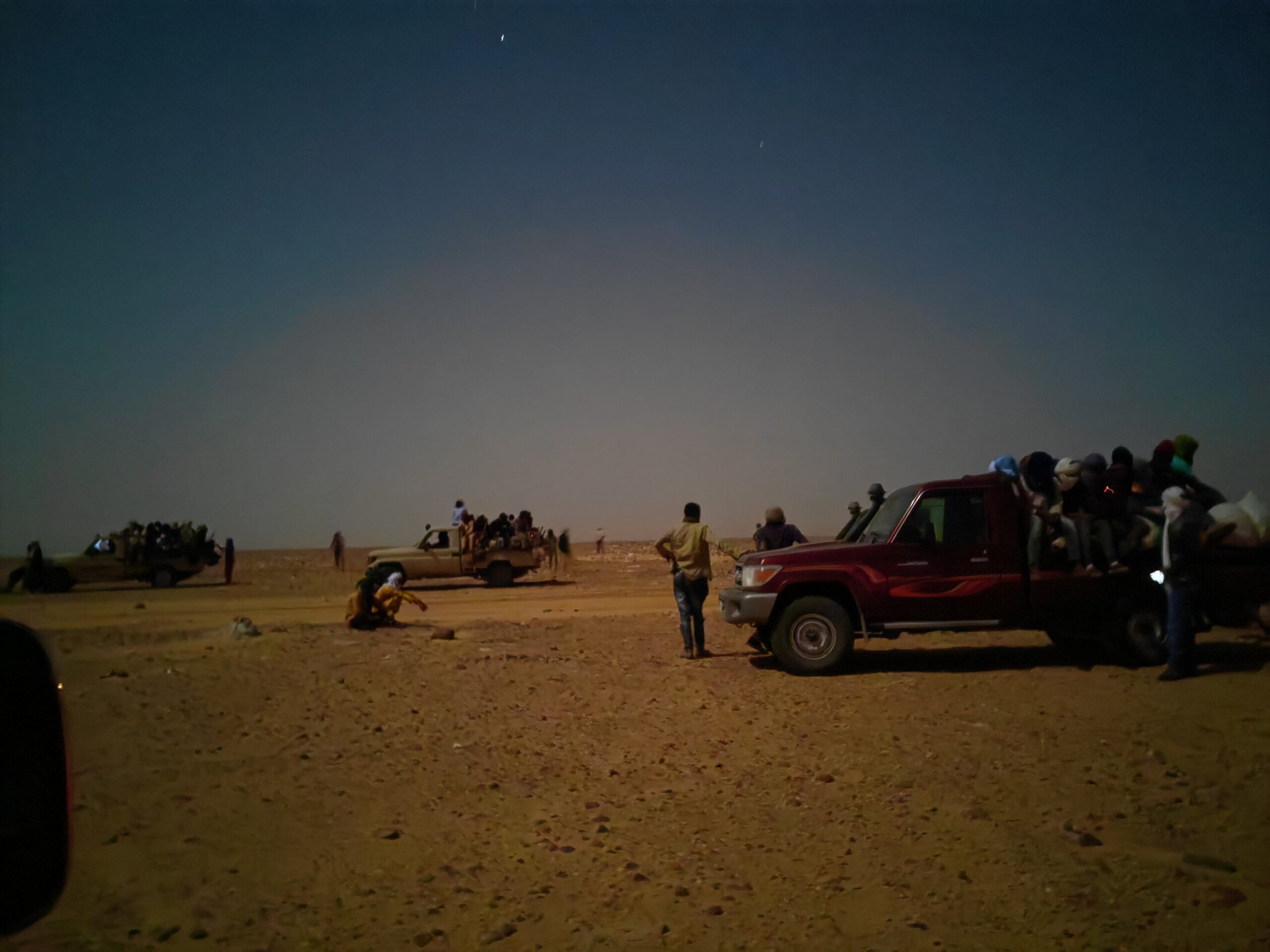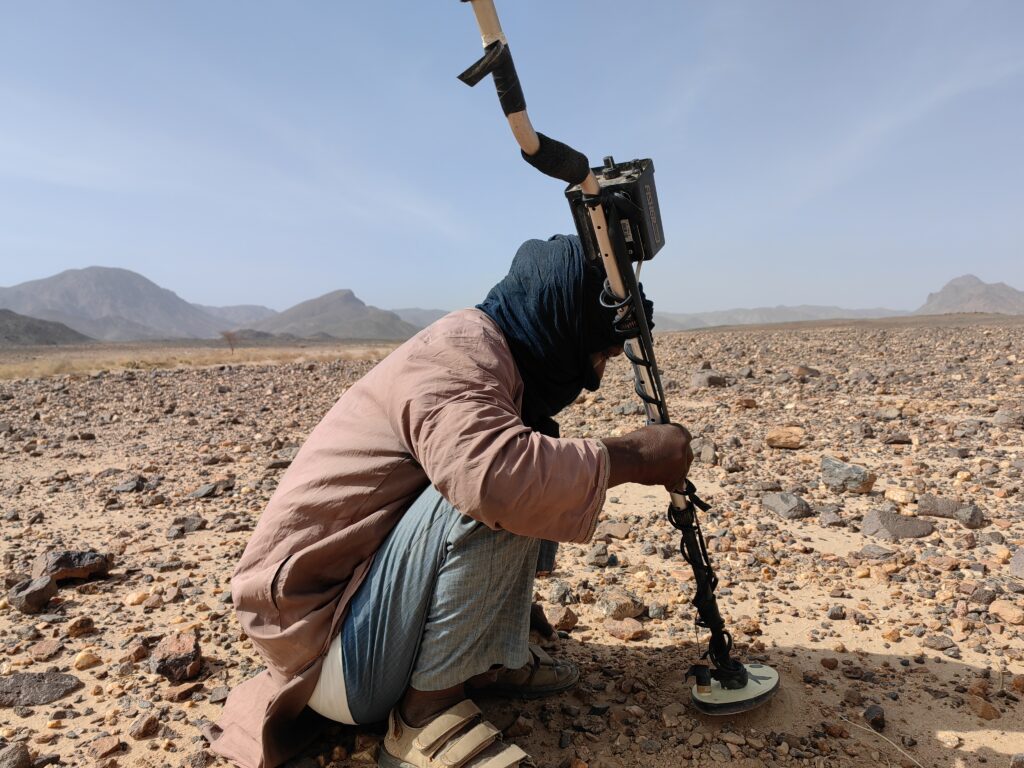In this analysis, I explore the geopolitical and humanitarian impact of Niger’s repeal of the 2015-36 law on illicit migrant trafficking, a significant shift from its previous role as a key European ally in migration control. This legislative reversal, amidst political upheaval and economic challenges, not only undermines the efforts and strategies of the EU in the region but also has profound implications on the livelihoods of locals, the safety of migrants, and the broader migration dynamics in the Sahel.
Niger’s Geopolitical Shift: The End of an Era in EU Migration Partnership
Since 2015, Niger has emerged as a vital ally of Europe in its foreign policy regarding the management of migratory flows in the Saharo-Sahelian borders. However, recent political and geopolitical developments, culminating in the coup of July 26, 2023, have significantly impacted this partnership. This abrupt regime change, leading to the suspension of EU budgetary aid and security cooperation and the imposition of sanctions against the new authorities, combined with the country’s challenging socio-political and economic situation due to severe ECOWAS sanctions, has redefined Niger’s stance on migration. Amid escalating diplomatic tensions, the country repealed the 2015-36 law on migrant trafficking — the sole legal and repressive framework of its migration control policy and that of the EU — and denounced the EUCAP Sahel Niger mission — the EU’s primary mechanism supporting the management of Niger’s borders.
The 2015-36 Law: A Controversial Approach to Migration Management
The enactment of the 2015-36 law was a significant step in the cooperation between Niger and the EU in combating migration. It criminalized providing certain services to migrants (transportation and accommodation), thereby ostensibly reducing migratory flows through Niger. However, since its enactment, the law was criticized by locals and regional authorities for its disastrous economic repercussions on a region already suffering from tourism decline and the gradual closure of uranium mines. The end of this transit economy resulted in the loss of over 6,000 jobs, effects not mitigated by the compensatory financial measures and retraining proposed by the state and the EU. Moreover, beyond the precariousness of local livelihoods, this law led to a real humanitarian disaster for migrants. Instead of deterring migrations through Niger, it led to the emergence of underground migrant transport networks and more dangerous and isolated routes, increasing the risks associated with crossing the Sahara Desert and migrant mortality.
Consequences of Repealing the Law: Economic, Political, and Humanitarian Implications
The repeal of this law implies several developments. Economically, this occurs against a backdrop of diminishing gold mining activities, harsh sanctions from ECOWAS, and a halt in international financial support. Notably, 55% of Niger’s budget is sourced externally, primarily from entities like the European Union, Germany, China, the United States, Belgium, and various multilateral organizations, including the World Bank, the International Monetary Fund (IMF), and African regional banks like the ECOWAS Bank for Investment and Development (EBID) and the West African Development Bank. For the new authorities, it helps ease the socio-political and economic tensions induced by sanctions and align the population with their sovereign political line. It also counters the antagonism of the EU. Beyond political and geopolitical considerations, the repeal benefits migrants. Without restrictive and repressive measures, they can move more freely and safely across the country, reducing risks associated with detoured routes. They can now travel in weekly convoys escorted by the army from Agadez to Dirkou, reverting to pre-law practices targeted by European partners through initiatives like the Joint Investigation Teams (JIT) and the 2016 opening of the EUCAP Sahel branch in Agadez. This reversal is a blow to the EU’s migration strategy in the region. Additionally, the lack of a dissuasive legal and repressive framework limits the impact of other European migration initiatives in the country, carried by international actors such as IOM or UNHCR.
Restoring the Status Quo: Broader Implications of Niger’s Legislative Reversal
By restoring the pre-2015 status quo, this repeal negates the political and financial efforts invested by Europe in these reforms. Despite border closures, Niger remains a migration hub, with IOM recording 220,852 entries, 134,715 internal movements, and 211,964 exits in the third quarter of 2023. As of October 31, 2023, the country hosts over 335,000 refugees and asylum seekers from neighboring countries. Furthermore, despite its challenging socio-economic situation, Niger continues to receive Sub-Saharan migrants expelled from Algeria at a sustained rate. Between September and October 2023, over 5,000 people were deported to Point Zero, located 15 km from Assamaka, the last town before Algeria. Hence, by the end of October 2023, this town of 3,000 inhabitants, lacking socio-sanitary services, hosts over 6,000 Sub-Saharans deported from Algeria, twice its population. The regional authorities of Agadez are already alerting to the brewing humanitarian crisis in this remote desert corner.
Conclusion
The repeal of the 2015-36 law on illicit migrant trafficking by Niger represents a pivotal shift in the country’s approach to migration, driven by complex geopolitical, economic, and humanitarian factors. This decision not only challenges the effectiveness of previous EU-Niger cooperation in migration management but also highlights the intricate balance between regional stability, economic necessities, and human rights. The immediate and long-term implications of this repeal extend beyond Niger’s borders, affecting migrant routes, regional geopolitics, and international relationships. It underscores the need for a more holistic and sustainable approach to migration that considers the socio-economic realities of transit countries like Niger, the safety and rights of migrants, and the broader geopolitical landscape. This situation serves as a critical reminder of the dynamic nature of international relations and the importance of adapting policies to the ever-changing global context.


